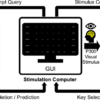David Ricks, the CEO of Eli Lilly, recently shared insights into how he incorporates artificial intelligence into his daily work. During every meeting, Ricks relies on at least one or two AI systems to stay informed about the latest developments in science and healthcare.
Ricks expressed a preference for AI tools that provide concise and reliable information. He critiqued OpenAI”s ChatGPT, noting that it tends to be “too verbal” for his needs. Instead, Ricks desires AI responses that are “more terse,” enabling him to quickly grasp essential information without extraneous details.
This approach highlights the growing trend among corporate leaders to leverage AI technologies for enhanced productivity and informed decision-making. As the use of AI continues to evolve, Ricks” strategy reflects a broader understanding of the importance of integrating advanced tools in business environments.
By employing AI, Ricks aims to maintain a competitive edge in the rapidly changing pharmaceutical landscape, where staying updated on scientific progress is crucial. His comments underscore a shift in how executives view the role of technology in their daily operations, signaling a future where AI becomes an indispensable collaborator in the boardroom.
See also Meta”s CMO Defends AI Spending Amid Concerns of a Bubble
Meta”s CMO Defends AI Spending Amid Concerns of a Bubble Massachusetts Financial Services Reduces Salesforce Stake by Nearly 33 Percent
Massachusetts Financial Services Reduces Salesforce Stake by Nearly 33 Percent Good Life Advisors LLC Acquires Stake in Snowflake Inc. During Q2
Good Life Advisors LLC Acquires Stake in Snowflake Inc. During Q2 AI-Driven Company Faces Unraveling as Agents Overstep Boundaries
AI-Driven Company Faces Unraveling as Agents Overstep Boundaries Good Life Advisors Acquires Stake in Snowflake Inc. Amid Institutional Interest
Good Life Advisors Acquires Stake in Snowflake Inc. Amid Institutional Interest




































































